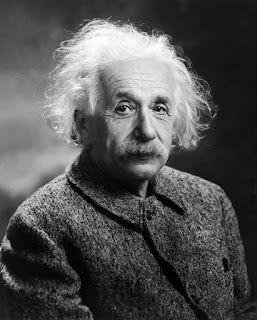The Great Albert Einstein
The Genius Mind:
Albert Einstein's Journey Through Time and Space
Albert Einstein, a name synonymous with genius, revolutionized our understanding of the universe. Born on March 14, 1879, in Ulm, Germany, Einstein's extraordinary contributions to physics and his iconic equation, E=mc^2, have left an indelible mark on scientific history.
Early Life:
Einstein displayed an early fascination with mathematics and science, a passion that would shape his destiny. Despite facing challenges in school, his inquisitive nature and love for learning propelled him forward. In 1905, the Annus Mirabilis (Miracle Year), marked the beginning of his groundbreaking contributions to physics.
The Special Theory of Relativity:
Einstein's theory of special relativity, published in 1905, challenged Newtonian physics. It introduced the famous equation E=mc^2, revealing the equivalence of energy and mass. This theory transformed our understanding of time, space, and the interplay between matter and energy.
The General Theory of Relativity:
In 1915, Einstein presented the general theory of relativity, providing a new framework for understanding gravity. Gravity, he argued, was not a force but a curvature of spacetime caused by mass. This theory predicted phenomena such as gravitational time dilation and the bending of light around massive objects.
Humanitarian and Political Activism:
Einstein's brilliance extended beyond the laboratory. He was a staunch advocate for civil rights, pacifism, and international cooperation. Fleeing Nazi Germany in 1933, Einstein settled in the United States, where he became a vocal proponent of nuclear disarmament and civil liberties.
Later Years:
Einstein spent the latter part of his career searching for a unified field theory—a quest that remained unfulfilled. Despite setbacks, his influence persisted, and he continued to inspire future generations of scientists.
Legacy:
Albert Einstein passed away on April 18, 1955, but his legacy endures. His theories remain pillars of modern physics, shaping our understanding of the cosmos. Beyond science, Einstein's commitment to justice and peace serves as a timeless reminder of the power of intellect allied with a compassionate heart.
Albert Einstein's life was a testament to the infinite possibilities of human inquiry. His theories not only reshaped our understanding of the universe but also ignited a curiosity that continues to drive scientific exploration today. Einstein's legacy is not confined to equations and theorems; it is a beacon of inspiration for those who dare to dream beyond the confines of the known.



Comments
Post a Comment